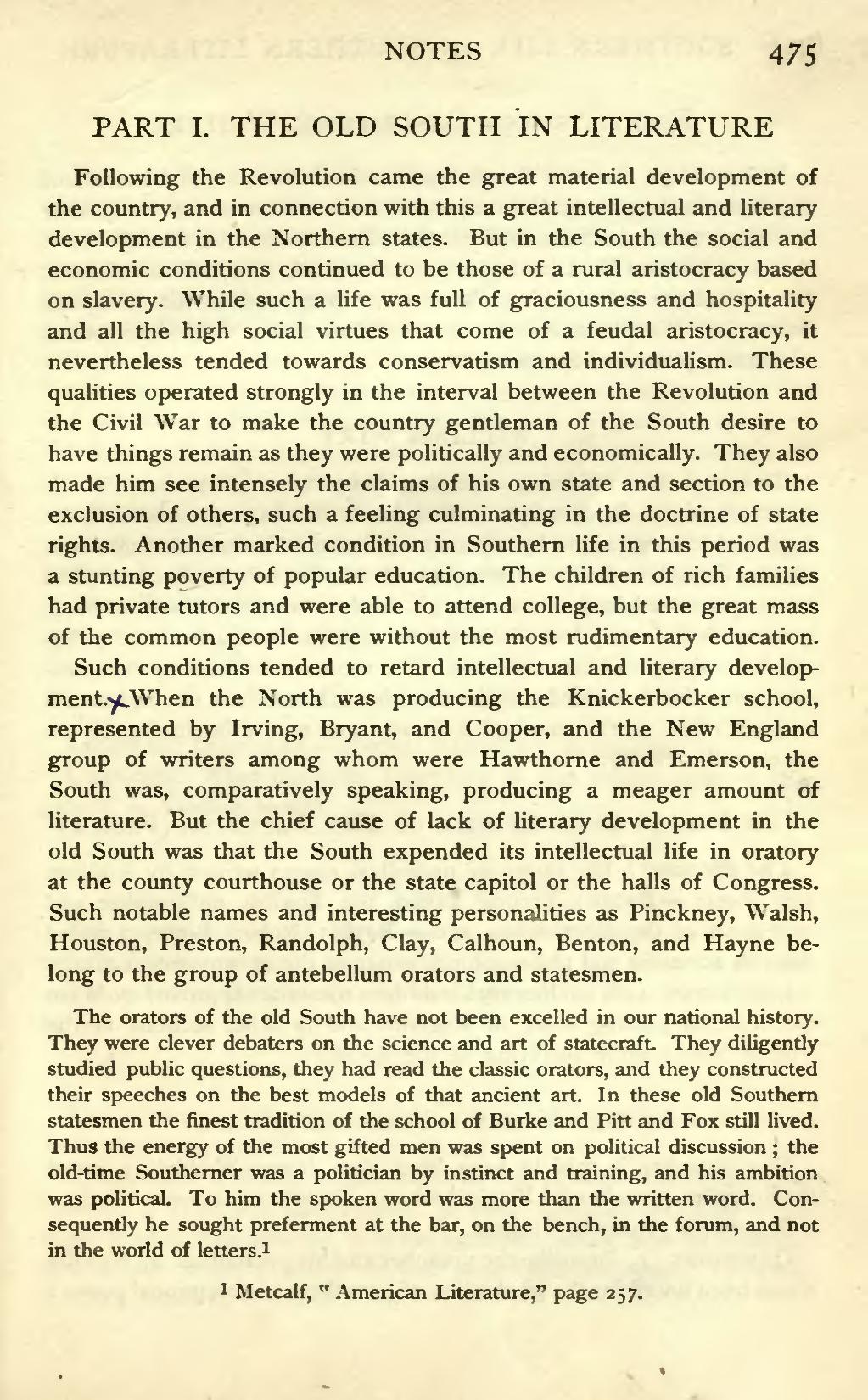PART I. THE OLD SOUTH IN LITERATURE
Following the Revolution came the great material development of the country, and in connection with this a great intellectual and literary development in the Northern states. But in the South the social and economic conditions continued to be those of a rural aristocracy based on slavery. While such a life was full of graciousness and hospitality and all the high social virtues that come of a feudal aristocracy, it nevertheless tended towards conservatism and individualism. These qualities operated strongly in the interval between the Revolution and the Civil War to make the country gentleman of the South desire to have things remain as they were politically and economically. They also made him see intensely the claims of his own state and section to the exclusion of others, such a feeling culminating in the doctrine of state rights. Another marked condition in Southern life in this period was a stunting poverty of popular education. The children of rich families had private tutors and were able to attend college, but the great mass of the common people were without the most rudimentary education.
Such conditions tended to retard intellectual and literary development. When the North was producing the Knickerbocker school, represented by Irving, Bryant, and Cooper, and the New England group of writers among whom were Hawthorne and Emerson, the South was, comparatively speaking, producing a meager amount of literature. But the chief cause of lack of literary development in the old South was that the South expended its intellectual life in oratory at the county courthouse or the state capitol or the halls of Congress. Such notable names and interesting personalities as Pinckney, Walsh, Houston, Preston, Randolph, Clay, Calhoun, Benton, and Hayne be long to the group of antebellum orators and statesmen.
The orators of the old South have not been excelled in our national history. They were clever debaters on the science and art of statecraft. They diligently studied public questions, they had read the classic orators, and they constructed their speeches on the best models of that ancient art. In these old Southern statesmen the finest tradition of the school of Burke and Pitt and Fox still lived. Thus the energy of the most gifted men was spent on political discussion; the old-time Southerner was a politician by instinct and training, and his ambition was political. To him the spoken word was more than the written word. Consequently he sought preferment at the bar, on the bench, in the forum, and not in the world of letters.[1]
